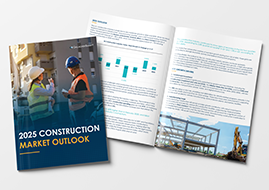
April 11, 2024 — Raymond Chandler* said, "I guess God made Boston on a wet Sunday." Yep. Stepping outside the conference hotel Monday evening was like being on the bridge of a destroyer in a typhoon, only a lot colder. The Workers' Compensation Research Institute's (WCRI) 2024 annual meeting, however, proved warm and welcoming inside the Westin Copley Square. WCRI conferences have been getting better and better in recent years, and 2024's edition was the best yet.
Here are a few highlights captured by your intrepid reporter from the press box:
- The conference started with Dr. David Cutler, an economist from Harvard, speaking on "What is happening in health care?" He had a number of points that apply to workers' compensation. For example, non-COVID health care, especially clinically severe healthcare, fell off during the pandemic and never returned. The resulting big dollar income losses have hit smaller providers hardest, propelling yet more doctor-hospital consolidation.
- The use of telehealth is fading back to lower levels post-COVID — 60% off from peak. Psychotherapy is the exception for telehealth. Meanwhile, smaller, more rural hospitals are continuing to close. If you have large operations in these areas, obtaining care for injured workers will get more complicated.
- Change in claims by state — fee schedules have suppressed cost growth in scheduled states. Fee schedule updates have been running about 3% for the last 3 years, primarily from scattered coding changes (no major trends).
- Psycho-social factors are becoming more important in compensation, especially in claims with low back pain. Psychological barriers to recovery — individual, workplace, and other — are common in compensation, especially after a course of physical therapy.
- Employers in the afternoon panel expressed growing concern about workplace violence, including patient and visitor violence in hospitals.
- WCRI presented research on the impact of provider vertical integration on claims outcomes. Reduced competition increases utilization and billing — more services, more imaging, but no indications of better outcomes.
- The first day ended with a look at exposure risks for heat-related injuries (HRI). Note that HRIs go up after 76 degrees. A heat wave is not required. Most HRI claims occur in the first few weeks of employment when new workers have not become acclimatized to heat exposure.
- The second day began with a look at loneliness and connection in the workplace. Connectivity matters. Gallup research shows that social relationships are important to health. Without supportive relationships in the work environment, we get negative health impacts, increased stress, lower productivity, a greater likelihood of quitting, and greater absenteeism.
- What has been the impact of the pandemic on workers' compensation indemnity benefit trends? Time loss claim frequency and severity grew rapidly in 2022, more than before or during COVID. These trends have tracked roughly with the growth of the working population during the same period, so this looks more like a bounce back to the status quo ante rather than a new development.
All in all, these and other presentations provided an excellent view into the internal state of workers' compensation. This was also the largest turnout for a WCRI conference since the late Neolithic Age. If comp is important to you and you are not a member of WCRI already, well, what are you waiting for?
*One of America's greatest mystery novelists and playwrights; author of, among others, The Long Goodbye, The Blue Dahlia, Strangers on a Train, and Double Indemnity.
Author

Dr. Gary Anderberg
Make Gallagher Bassett your dependable partner
When making the right decision at the right time is critical to minimize risk for your business, count on Gallagher Bassett's extensive experience and global network to deliver.

